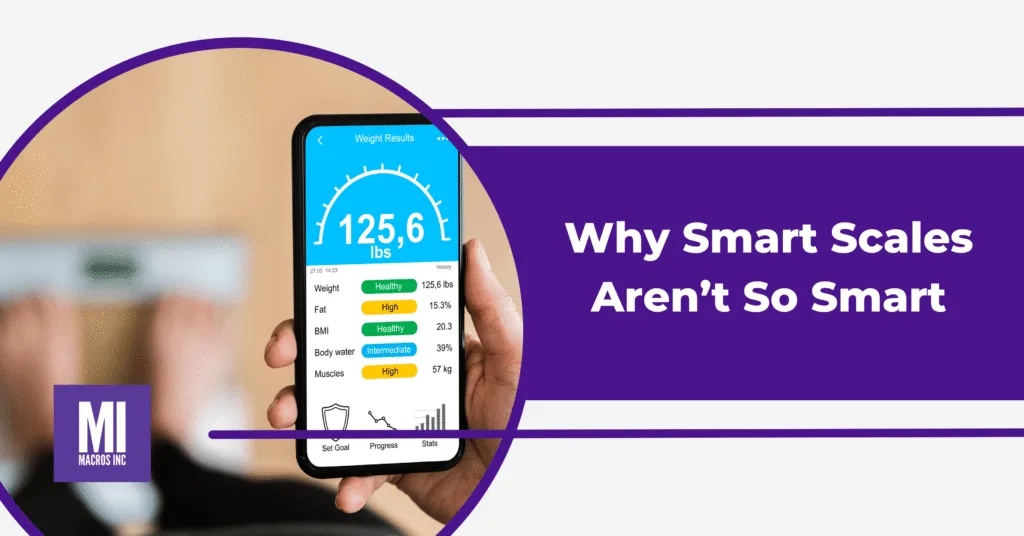Smart scales promise precision. Step on, sync up, and suddenly you’ve got a detailed breakdown of your weight, body fat percentage, hydration, muscle mass, bone density, and sometimes even your metabolic age. It sounds high-tech, impressive, and helpful. But for many people, these numbers can do more harm than good.
Jump to a Topic
Why Smart Scales Aren’t So Smart
The Illusion of Accuracy
The biggest problem with smart scales is that they give an impression of scientific accuracy when, in reality, most of their measurements are educated guesses at best.
Smart scales use a method called bioelectrical impedance. A small electrical current is sent through your body, and the scale estimates the makeup of your tissues based on how the current flows. But hydration, food intake, time of day, recent exercise, and even the temperature of the room can throw off the results.
You could step on the scale in the morning and get a body fat reading that’s several percentage points different from what you see after lunch. The number changed, but your body didn’t.
What the Scale Misses Entirely
Even when smart scales are consistent, they can’t see what’s actually happening beneath the surface. They don’t track whether your muscle mass is functional, where your body fat is distributed, or if you’re retaining water from last night’s salty meal. They definitely can’t tell you if your body composition is improving in ways that matter to your health and goals.
If you’re lifting weights, improving your strength, eating more protein, and sleeping better, your body is changing. But your smart scale might show little to no progress, or even the wrong direction, simply because the signal it’s picking up doesn’t tell the whole story.
When Smart Scales Backfire
What starts as motivation often turns into frustration. You work hard, feel stronger, look better, but the scale tells you your body fat went up. Or your muscle mass dropped. Or your metabolic age got worse. The data doesn’t match the effort, and that disconnect can cause people to give up on changes that are working.
We see this all the time with coaching clients. Someone is making real progress, clothes fit better, lifts are improving, energy is up, but they panic because their scale spits out a disappointing number. They end up second-guessing themselves and making changes that actually set them back.
So Should You Stop Using One?
Not necessarily. Smart scales can be useful if you treat them as a rough trend tool, not a precision instrument. Weighing yourself at the same time each day under the same conditions can help smooth out the noise and give you a general sense of change over time.
But that’s all it is, a general sense. The most reliable progress markers are the ones you can feel, see, and track over weeks and months. Strength gains, consistent routines, better energy, improved digestion, and how your clothes fit matter more than decimal points on a body fat reading.
Final Thoughts
Smart scales aren’t useless. They’re just misunderstood. They offer estimates, not diagnostics. They’re most helpful when paired with other forms of progress tracking, and when you don’t give them more authority than they deserve.
Your body is not a spreadsheet. It’s a dynamic, adapting system. Trust the habits that lead to results, not just the numbers that show up on a screen.
If you want help focusing on what really matters for your health and body composition, our coaching team is here to guide you every step of the way.
Try our nutrition coaching, for free!
Be the next success story. Over 30,000 have trusted Macros Inc to transform their health.
Simply fill out the form below to start your 14-day risk-free journey. Let's achieve your goals together!

